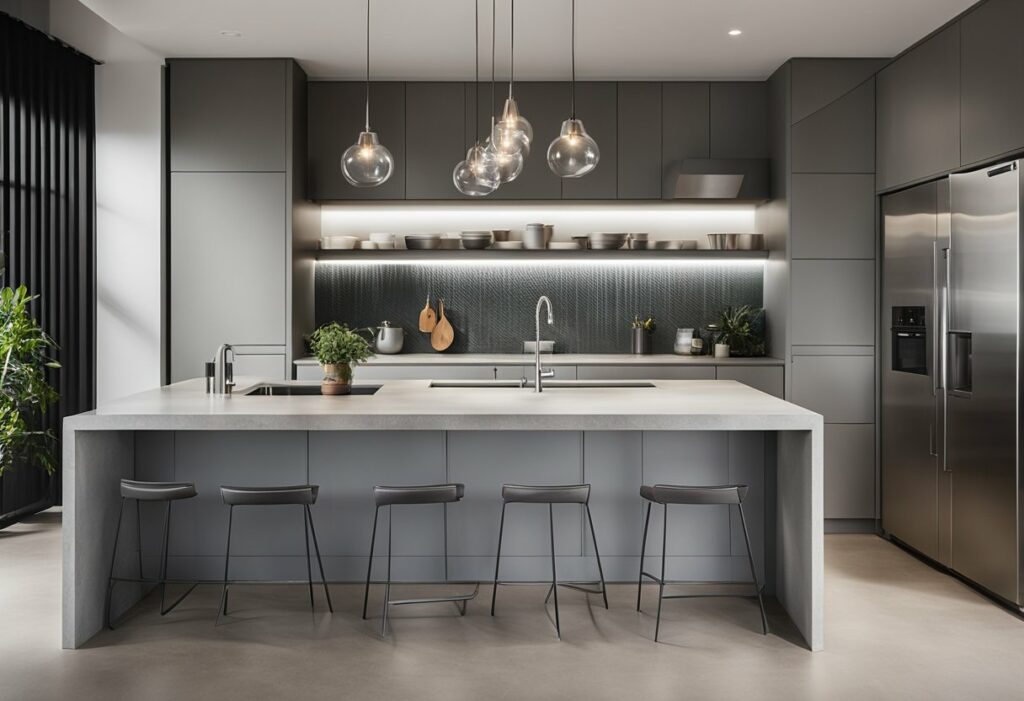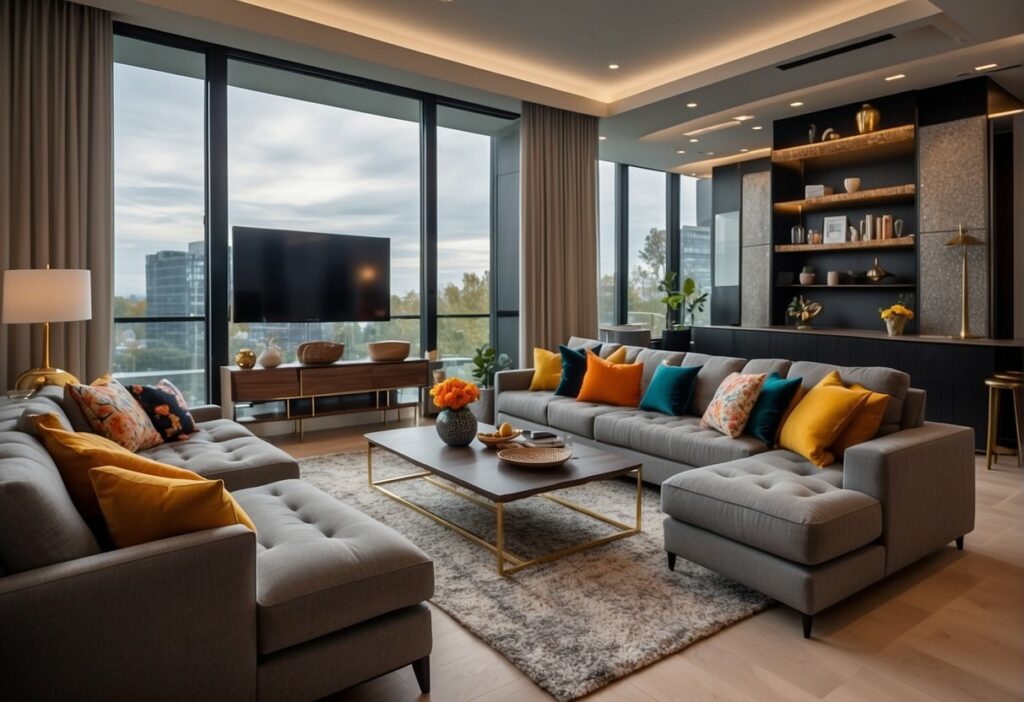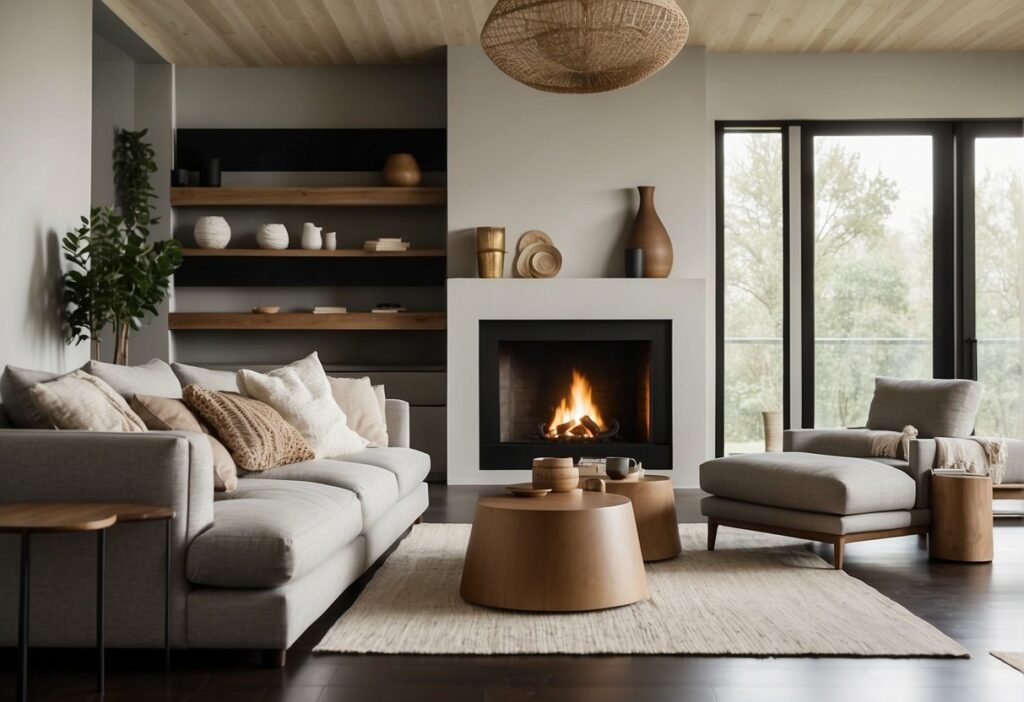Kitchen Cement Design: The Latest Trend in Modern Kitchens
Are you tired of the same old kitchen design? Perhaps you’re looking for something unique and modern that will make your kitchen stand out. Look no further than kitchen cement design! Concrete is a versatile and durable material that can be used to create a sleek and stylish space that will impress your guests.
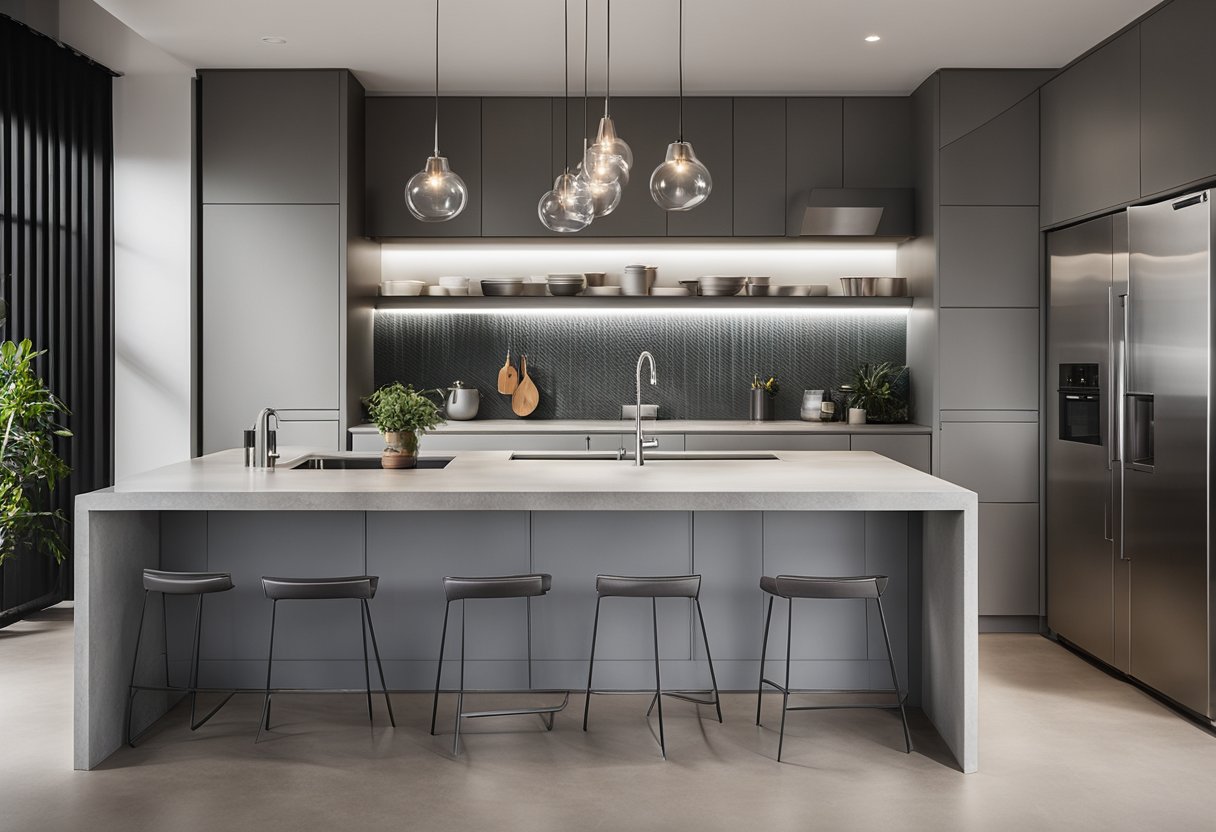
Designing your concrete kitchen is all about finding the right balance between functionality and aesthetics. You’ll want to consider your needs and preferences when it comes to the layout, storage, and appliances. Concrete countertops and backsplashes are a popular choice for their durability and easy maintenance. You can also incorporate concrete flooring, walls, and even cabinets to create a cohesive look.
Accessorising your kitchen space is where you can really let your personal style shine. Choose complementary materials such as wood, metal, or glass to create a warm and inviting atmosphere. Add pops of colour with accessories such as rugs, curtains, and artwork. Don’t be afraid to mix and match textures and patterns to create a unique and eclectic look.
Key Takeaways
- Kitchen cement design is a unique and modern way to add style and durability to your kitchen.
- Designing your concrete kitchen requires finding the right balance between functionality and aesthetics.
- Accessorising your kitchen space allows you to showcase your personal style and create a warm and inviting atmosphere.
Designing Your Concrete Kitchen
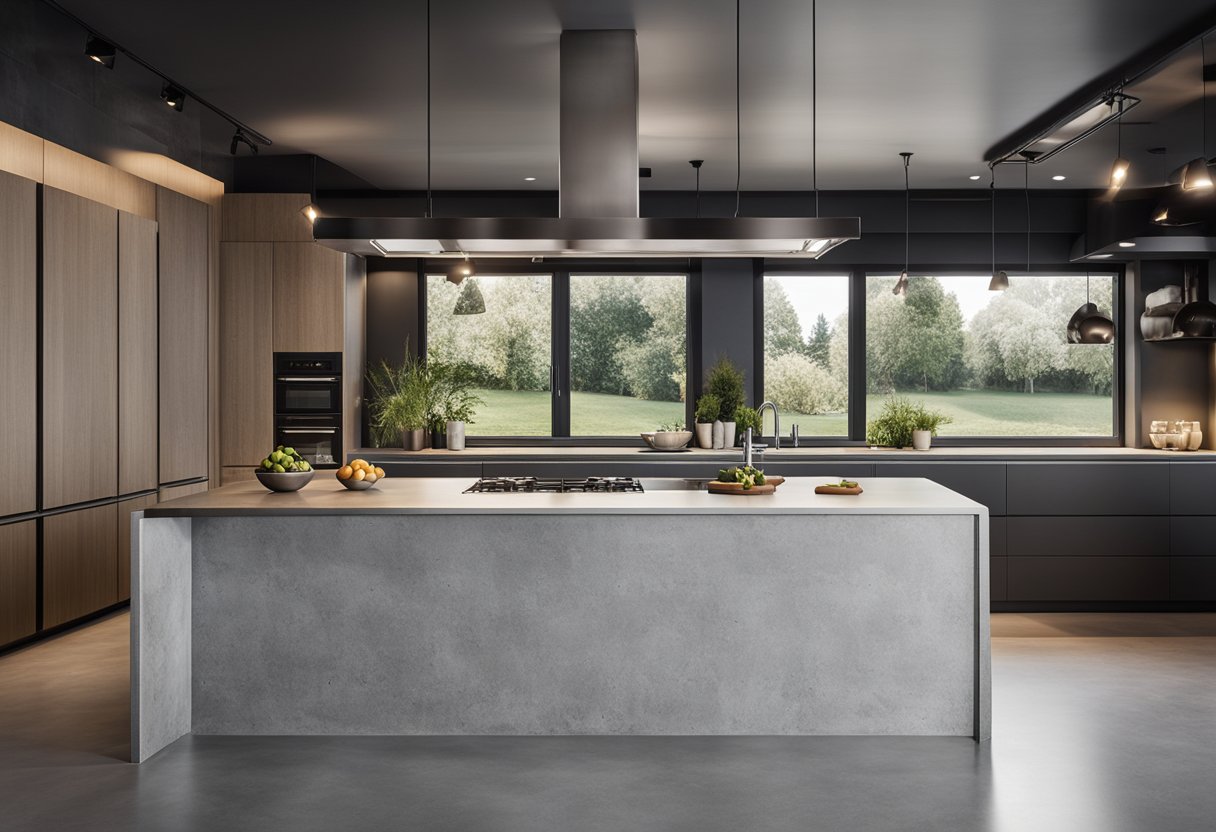
Are you considering a concrete kitchen design? Concrete is a versatile and durable material that can add a unique touch to any kitchen. Here are some tips to help you design your perfect concrete kitchen.
Choosing the Right Concrete Elements
When designing your concrete kitchen, it’s important to choose the right elements. Concrete countertops are a popular choice for their durability and unique look. You can also incorporate concrete flooring and walls to create a cohesive design.
Incorporating a Concrete Island
A concrete kitchen island can be a stunning focal point in your kitchen. It can be designed to match your countertops or have a contrasting colour for added visual interest. A concrete island can also provide additional storage and workspace.
Selecting the Perfect Backsplash
A backsplash is a great way to add a pop of colour to your concrete kitchen. Consider using tiles or mosaics to create a unique design. If you prefer a more minimalist look, a concrete backsplash can be a great option.
Cabinetry and Concrete Harmony
When it comes to cabinetry, there are many options that can complement a concrete kitchen. Flat-panel cabinets can provide a sleek and modern look, while shaker cabinets can add a touch of traditional style. Light wood, white, and medium tone wood cabinets can all work well with concrete. For a bold statement, black cabinets can create a stunning contrast.
With these tips, you can create a beautiful and functional concrete kitchen that suits your style and needs.
Accessorising Your Kitchen Space
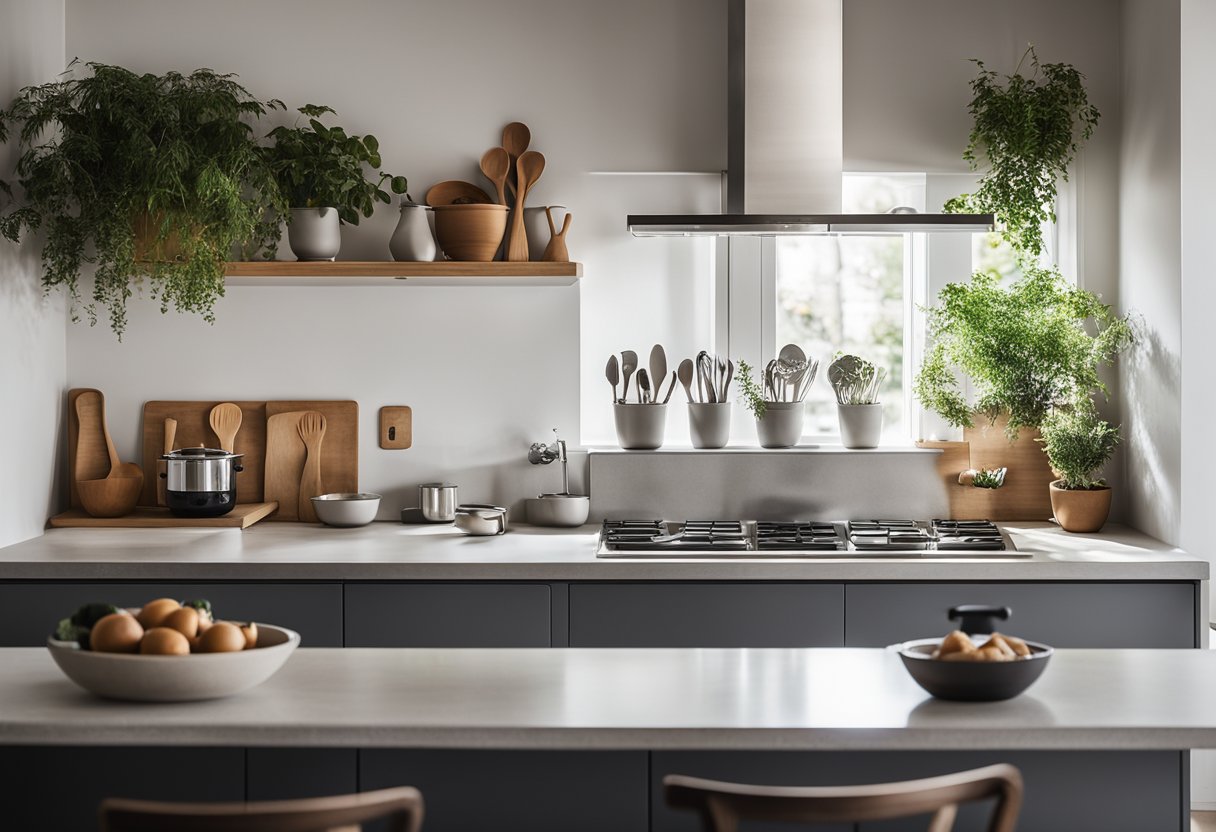
When it comes to accessorising your concrete kitchen, there are a lot of things to consider. From choosing the right appliances to selecting the perfect decor, every detail counts. Here are some tips and ideas to help you create a beautiful and functional kitchen space.
Choosing Appliances for a Concrete Kitchen
Stainless steel appliances are a popular choice for concrete kitchens, as they complement the industrial look and feel of the space. However, white and black appliances can also work well, depending on the overall style of your kitchen. Large appliances, such as a fridge and oven, should be chosen with care to ensure they fit seamlessly into your space.
Lighting and Decor Details
Lighting is a key element in any kitchen, and it’s especially important in a concrete kitchen. Pendant lights can add a stylish touch, while under-cabinet lighting can provide practical illumination for food prep and cooking. Decor details, such as plants, artwork, and kitchen accessories, can help to soften the look of the space and add a personal touch.
Flooring and Walls Considerations
When it comes to flooring and walls, there are a lot of options to consider. Concrete floors are a popular choice for a minimalist, industrial look, but hardwood flooring can also work well to add warmth and texture to the space. Tiles are a great option for walls, with subway tile and ceramic backsplash being popular choices. Quartz, wood, and white countertops can all work well in a concrete kitchen, depending on your personal style. And don’t forget about the sink – undermount, double-bowl, farmhouse, and drop-in sinks can all work well in a concrete kitchen.
Overall, accessorising your concrete kitchen is all about finding the right balance between form and function. With careful consideration of appliances, lighting, decor, and materials, you can create a beautiful and functional space that you’ll love spending time in.
Frequently Asked Questions
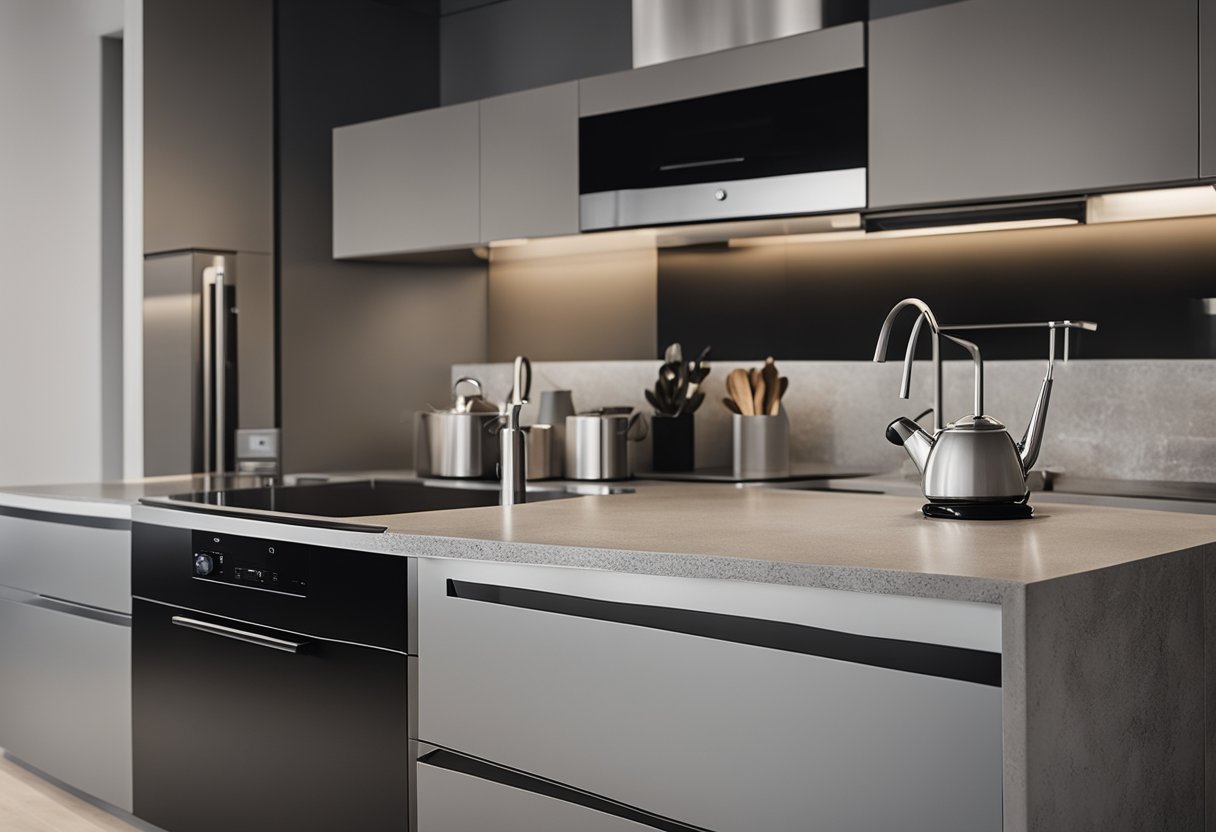
What are the latest trends in concrete kitchen designs?
Concrete kitchens are becoming increasingly popular as people seek out industrial, minimalist, and modern aesthetics. One of the latest trends in concrete kitchen designs is the use of different finishes, such as polished or matte, to create a unique look. Another trend is the incorporation of colour pigments to add a pop of colour to the kitchen. Additionally, concrete kitchen islands and countertops are being designed with integrated sinks, which adds to the functionality of the kitchen.
How can you maximise space with a cement design in a compact kitchen?
Cement designs can actually help maximise space in a compact kitchen. One way to do this is by using concrete countertops that extend to the walls, creating a continuous surface that maximises counter space. Another way is to incorporate concrete elements, such as shelving or cabinets, into the design. This adds storage space while maintaining a cohesive look.
What are some creative ideas for incorporating concrete elements into my kitchen cabinetry?
Concrete elements can be incorporated into kitchen cabinetry in many ways. One creative idea is to use concrete as a backsplash or accent wall behind open shelving or glass cabinets. Another idea is to use concrete as a material for cabinet fronts or drawer faces, which creates a unique and modern look. Additionally, concrete can be used to create floating shelves or a concrete range hood.
Can you suggest simple yet stylish cement design themes for a modern kitchen?
A simple yet stylish cement design theme for a modern kitchen is to use a neutral colour palette, such as grey or white, and incorporate clean lines and minimalistic shapes. This can be achieved by using concrete countertops, cabinets, or shelving, and pairing them with stainless steel appliances and accessories. Another idea is to use concrete as an accent, such as a backsplash or range hood, to add texture and depth to the design.
What are the benefits of choosing concrete countertops for my kitchen?
Concrete countertops offer many benefits, such as durability, versatility, and a unique look. They are resistant to heat, scratches, and stains, making them ideal for the kitchen environment. Additionally, concrete countertops can be customised with different finishes, colours, and textures to fit any design style.
How do I maintain and care for concrete kitchen surfaces?
To maintain and care for concrete kitchen surfaces, it is important to clean up spills and stains as soon as possible. Use a mild soap and water to clean the surface, and avoid using abrasive cleaners or scrubbers that can damage the finish. Additionally, it is recommended to seal concrete surfaces every one to three years to protect them from stains and scratches.

